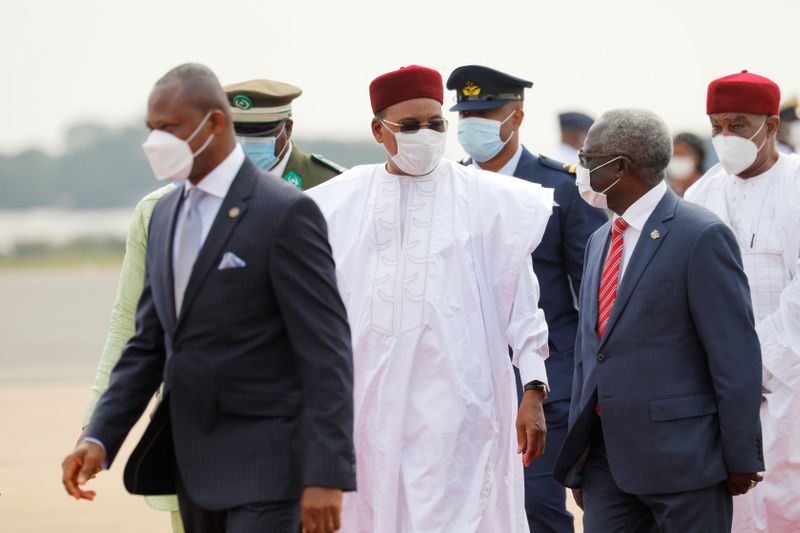By Boureima Balima
NIAMEY (Reuters) - Niger began counting the votes on Sunday from an election that is expected to lead to the West African nation's first transfer of power between two democratically elected presidents.
Results are expected in the coming days.
A smooth handover would be a rare bright spot for a country that has seen four coups since gaining independence from France in 1960, and is blighted by poverty and Islamist violence that has killed hundred of civilians and soldiers in the last year alone.
It would also contrast with Ivory Coast and Guinea, whose presidents this year used constitutional changes to extend their tenures to three terms, raising fears of a democratic backslide in West Africa.
"It's extremely important for us because we are seen as the champion of the coup d'etat," said 50-year-old Massaoudou Abdou who voted in a school in the town of Maradi in southern Niger.
"In 60 years of independence, this is the first time," he said, referring to the passing of power from one elected president to another.
There were no reports of widespread disruptions.
Former interior minister Mohamed Bazoum, the ruling party's candidate, is the overwhelming favourite to succeed President Mahamadou Issoufou, who is stepping down after two five-year terms leading the country of 23 million.
Bazoum, 60, has promised continuity with Issoufou's policies, while also vowing to clean up pervasive corruption.
"I have a feeling of great pride that this (election) has been respected," he said after voting in central Niamey on Sunday.
That the vote took place at all was seen as a success for Niger. Militants linked to al Qaeda and Islamic State regularly carry out attacks near the western border with Mali and Burkina Faso, including one in January that killed at least 89 soldiers. Hundreds of miles to the east, Boko Haram fighters operate near its southeastern border with Nigeria.
Outgoing president Issoufou said after voting that the election marked a "special day" that laid a "stone of expectation" for future generations.
More than 40% of Niger's population lives in extreme poverty, and the COVID-19 pandemic has slowed growth to a crawl, compounding the effects of climate change and low prices for uranium, its top export.
Bazoum faces 29 other candidates, who hope to force a second round by denying him an outright majority.
Hama Amadou, who finished runner-up in the last election, was barred from running because of a criminal conviction, leaving the opposition without an obvious leader.

But last week, Amadou's party called on its supporters to turn out for Mahamane Ousmane, who was president from 1993-1996, which could spur some to turn out and vote.